The life and times of Mikhail Gorbachev – the last leader of the USSR
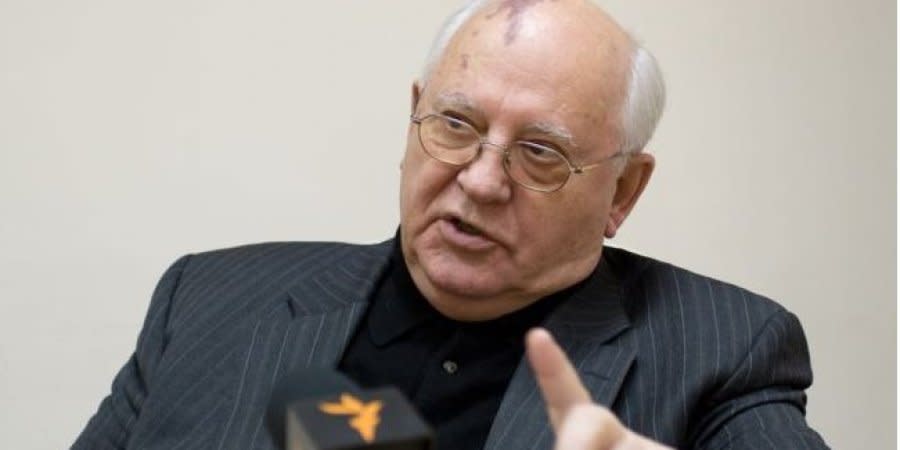
- Oops!Something went wrong.Please try again later.
- Oops!Something went wrong.Please try again later.
- Oops!Something went wrong.Please try again later.
Immediately after Russian dictator Vladimir Putin replaced former Russian President Boris Yeltsin, Gorbachev was critical of him, but later began to speak favorably of his aggressive policies. In particular, Gorbachev approved of the occupation of Ukraine’s Crimea and assumed there was a possibility of the emergence of a new union state among the countries of the former Soviet Union.
Read also: ‘Russia wants to drag Ukraine back to the USSR,’ says US chargé d'affaires in Ukraine
Two days after the start of Russia's full-scale invasion of Ukraine, the Gorbachev Foundation, founded by the former politician, issued a brief statement calling for an end to hostilities and the start of negotiations.
NV recalls Gorbachev’s life, his actions, and his impact on world history.
Childhood. Could have been Viktor
Mikhail Gorbachev was born on March 2, 1931 in the village of Privolne in the North Caucasus region, the son of collective farmers Sergey Gorbachev and Maria Gorbachova. He was Ukrainian on his mother's side: his grandfather, Pantelei Hopkalo, was born in the Chernihiv province.
The parents named the future initiator of perestroika Viktor. But two weeks later he was "renamed.”
"I was brought to the neighboring village of Letnitske (now it is in the Rostov region), where there was a church, to be baptized,” Gorbachev told Ukrainian journalist Dmytro Gordon in 2011.
Read also: Putin's Russia might repeat the fate of the USSR
“Grandfather Andrii (on the paternal line - ed.) was asked: ‘What shall we call him?’ ‘Mikhail.’ And that was that! Democracy was simple there, and although the father and mother were, of course, present at the christening, they did not have the right to vote."
Privolne was occupied by the Nazi army for about half a year. After the liberation of the village, Mikhail began to combine studying at school with work at the collective farm. He liked combines. In 1949, 18-year-old Mikhail was awarded the Order of the Labor Red Banner for his success in threshing grain.
Student life and marriage
In 1950, Gorbachev entered the law faculty of Moscow State University, without taking the entrance exams as he was an honors student (graduated with a silver medal), and a recipient of the labor order. In the same year, Raisa Tytarenko, a girl from Sterlitamak, was admitted to the Faculty of Philosophy – also without having to take the entrance exams.
The young couple met in a dormitory. On Sept. 25, 1953, they registered their marriage, but celebrated their wedding only in November, in a cafeteria. There were meatballs, vinaigrette, and vodka on the table, Gorbachev recalled. The following year, in 1954, Raisa had an attack of rheumatism, which caused complications. She was pregnant, but doctors strongly advised against giving birth.
"I was told: ‘Make a choice: the child may be born, or not, but you will lose your wife,” the ex-president of the Soviet Union told Komsomolskaya Pravda in 2014.
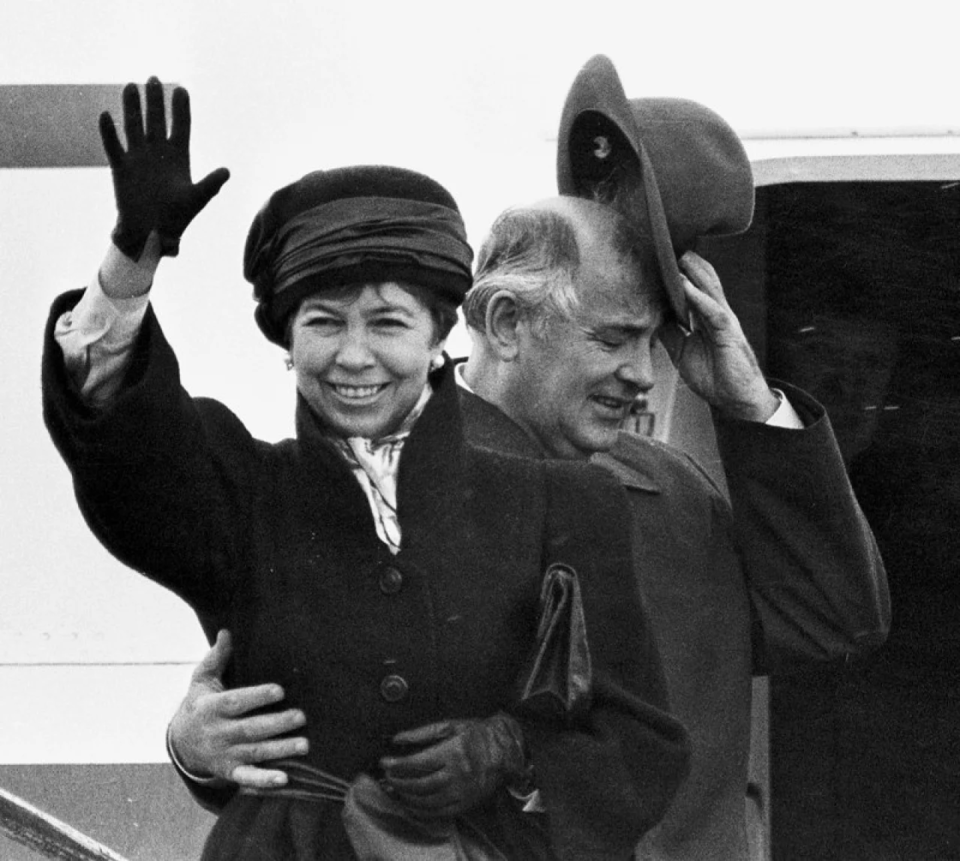
“Her heart may not be able to withstand it.’ The pregnancy was terminated. We were told it had been a boy. How Raisa was upset, and suffered! I comforted her as best I could. After all, we had already discussed the name: I had persuaded her to name my son Sergey, in honor of my father."
After the family moved to Stavropol, Raisa felt better. In 1957, the Gorbachevs then had a daughter, Iryna.
The couple were inseparable until the death of Raisa Maksimivna: she died of leukemia in a clinic in Münster, Germany, on Sept. 20, 1999
The trademark birthmark
The most distinctive physical feature of Mikhail Gorbachev was the large birthmark on his head. In Soviet times, this caused ridicule: on official portraits of members of the Politburo the birthmark was retouched, but it was clearly visible on television footage.
After the introduction of the glasnost policy, photos began to be published without retouching.
An archive document, published in 2020 on the website of the U.S. State Department, contains excerpts from the working materials of the preparation of U.S. diplomats for negotiations with the Minister of Foreign Affairs of the Soviet Union, Andriy Gromyko, in 1985. One of the humorous remarks was this: "If the Soviets dismantle all the SS-20 (medium-range missile complex - ed.), we are ready to erase Gorbachev's birthmark on American photographs."
The spot is a capillary hemangioma, a benign tumor. They are removed only if they increase in size rapidly. Gorbachev had had it from birth, but it was hidden by his hair until about the age of 40, when the party functionary began to go bald.
Mysterious death of his patron
Gorbachev was considered a protégé of his predecessor, who held the post of First Secretary of the Stavropol Krai Committee of the Communist Party of the Soviet Union, Fyodor Kulakov, who in every way contributed to the career of the Privolne native.
In 1971, Kulakov became the youngest member of the Politburo, being the secretary of the Central Committee responsible for the agricultural sector. But on July 17, 1978, the 60-year-old official was found dead in a dacha near Moscow. Mikhail Mirtyukov, the former head of affairs of the Soviet Council of Ministers, said that two empty cognac bottles were found next to Kulakov’s deathbed. The cause of death was given as heart failure. The member of the Politburo abused alcohol, and on the day of his death, according to historians, he had quarreled with his wife.
Still, rumors spread across the country that Kulakov had been killed – either poisoned or shot. Soviet citizens said the fact that neither General Secretary Leonid Brezhnev nor Prime Minister Oleksii Kosygin attended the funeral was a "special sign."
Read also: Russia lost over 35,000 troops so they could raise a Soviet flag over ruins – Zelenskyy
Gorbachev was included in the funeral commission. On the day of Kulakov's funeral, July 20, he spoke for the first time in his life from the rostrum of the Mausoleum on Red Square in Moscow. And four months later, on Nov. 27, 1978, the 47-year-old Gorbachev succeeded Kulakov as the Secretary of the Central Committee of the Communist Party of the Soviet Union.
In December of the same year, the senile Soviet leader Brezhnev, who could barely speak, awarded the new resident of the Kremlin with the Order of the October Revolution. At the same ceremony, Eduard Shevardnadze, the First Secretary of the Central Committee of the Communist Party of Georgia, a future associate of Gorbachev’s, received the Order of Lenin.
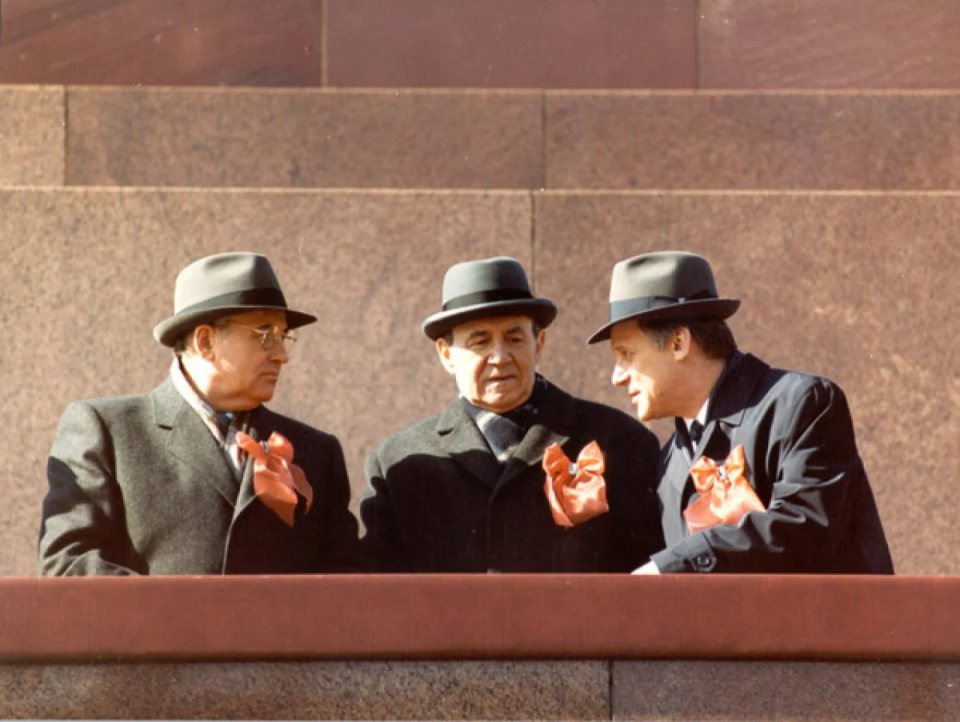
1985: Perestroika
In the last years of Gorbachev's life, it was noted in the press that he allegedly became the General Secretary of the Central Committee with only one vote more than the head of the Moscow City Committee, the conservative Viktor Grishin, during voting by the members of the Politburo. This comes from Gorbachev's memoirs, where he wrote that if he had not been supported by "50% of Politburo members plus one vote" in the spring of 1985, he would not have undertaken the transformation of the country.
There is no archival evidence of a fierce political struggle. Grishin himself said that he withdrew from the fight for the post of General Secretary. The Kremlin hierarchy was in favor of Gorbachev – he led the meetings of the Secretariat of the Central Committee, and during the meetings, he sat on the right-hand side of General Secretary Konstantin Chernenko.
On the evening of March 10, 1985, Chernenko, who had been unconscious for several days in the Kremlin’s hospital, died. On March 11, a meeting of the Politburo was held. Gromyko took the floor. He proposed Gorbachev's candidacy for the post of general secretary. No one objected. The Plenum of the Central Committee approved the appointment on the evening of March 11.
Read also: Kyiv mayor says Russia seeks to restore the Soviet Union
On April 23, 1985, the new General Secretary made a speech about the need to accelerate the socio-economic development of the country.
On May 23, at a meeting with Leningrad (now St. Petersburg) residents, Gorbachev stated: "Apparently, comrades, we all need to rebuild."
Acceleration and restructuring (as well as glasnost and democratization, announced somewhat later) and became the cornerstones of the policy of the new leadership of the Soviet Union.
Chornobyl: the series and facts
In his later years, Gorbachev admitted that some actions of the authorities after the explosion at the Chornobyl nuclear power plant in 1986 had been mistakes. In particular, he pointed out the Kremlin's three-week silence about the incident and allowing the May Day parade in Kyiv to go ahead, just days after the catastrophe.
"The parades were not cancelled, because as of May 1 there was still no complete picture of what happened,” Gorbachev told the BBC in 2006.
“Indeed, we were afraid of panic – you yourself can imagine the possible consequences of a mass panic in a multi-million population city! Now it is clear that it was a mistake.”
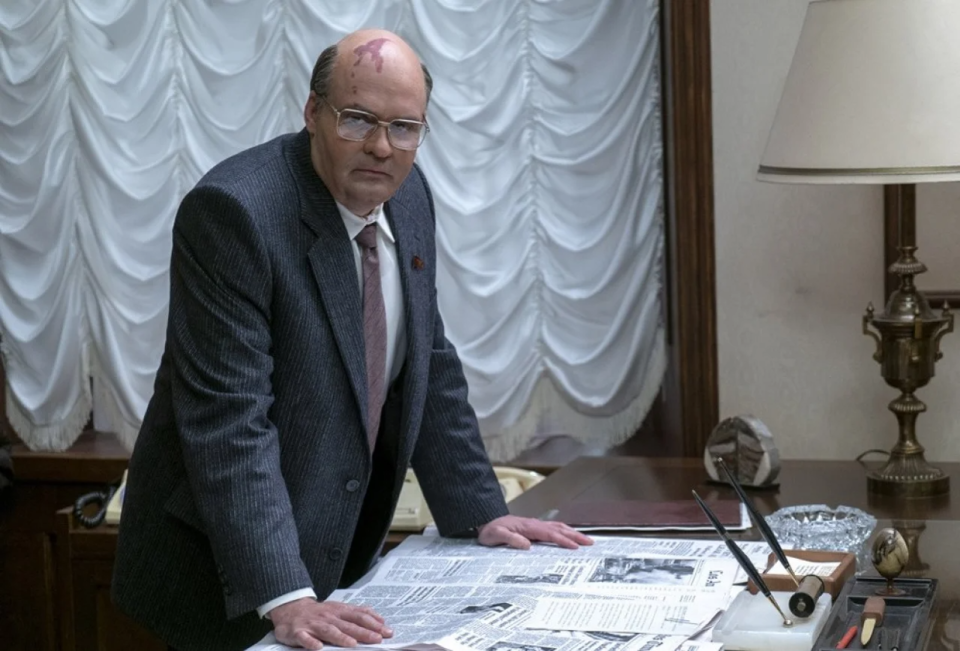
Gorbachev’s role in the accident at the Chornobyl nuclear power plant was in the public eye again in 2019, when Swedish actor David Densik played the Soviet leader in the Chornobyl television drama series. According to the series, the Soviet leader was concern that news about the explosion would leak out to the Western press. The series also hints that Kremlin displeasure with the excessive frankness of nuclear scientist Valery Legasov led to that scientist’s career being ruined. But in an interview with the Govorit Moscow radio station, Gorbachev claimed that he was not involved in Legasov's oppression.
Mausoleum and assassination attempt
On Nov. 7, 1990, a Leningrad resident named Alexander Shmonov attempted to shoot Gorbachev during a demonstration, as the president of the Soviet Union stood on the podium of the Lenin Mausoleum in Moscow. Shmonov, hiding a hunting rifle with a sawn-off stock under his clothes, had wedged himself into the column of demonstrators and managed to approach the head of state to a distance of 50 meters.
He fired twice, but a policemen managed to knock the barrel of the gun upwards – and both bullets went above their target. Shmonov was detained by KGB officers. The broadcasting of the demonstration on Soviet television was interrupted for 15 minutes.
At the investigation, Shmonov claimed that he had wanted to hit Gorbachev in the head because he knew that he was wearing a bulletproof vest. Shmonov said his motive was revenge for the bloody Soviet crackdowns against dissent in Tbilisi, Georgia and Baku, Azerbaijan, and demanded that the president of the Soviet Union be elected in national elections.
Shmonov was declared to be mentally ill. He detained for four years in a psychiatric clinic.
Doomsday Clock
Since 1947, atomic scientists from the United States have been setting the position of the hands of the Doomsday Clock, an estimation of how close the world is to disaster, with midnight on the clock symbolizing a nuclear cataclysm. When Gorbachev came to power, the hands of the clock were at 11:57 p.m.
By 1988, the hands had moved back to 11:54 p.m., and two years later, to 11:50 p.m. In 1991, when the Soviet and the USA signed a treaty on the reduction of strategic arms, the "clock" showed 11:43 p.m., the farthest position from midnight in history – testifying to the success of Gorbachev's disarmament policy.
As of the end of 2020, the world was 100 seconds away from nuclear war.
The most important episode of the second half of the 1980s is the fall of the Berlin Wall and the subsequent unification of West and East Germany. In 1990, Gorbachev was recognized as "man of the year" in Germany, and he was awarded the Nobel Peace Prize. His bust is at the beginning of the gallery of monuments to the Fathers of German Unity in Berlin.
In 2009, the ex-president of the Soviet Union claimed that he even had to persuade some Western leaders, for example, former French President Francois Mitterrand, not to interfere with the rapid process of the merger of the Federal Republic of Germany and the GDR.
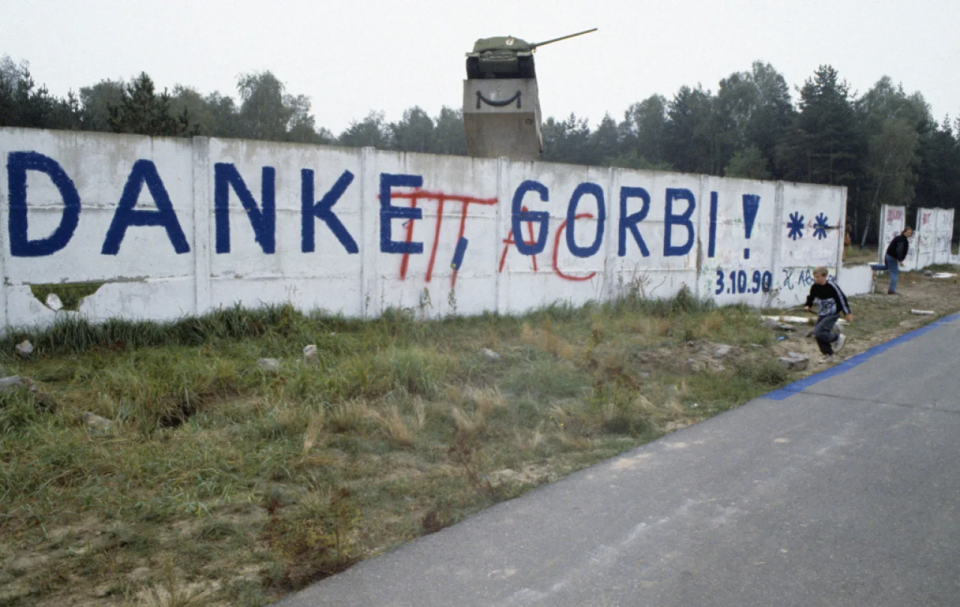
Resignation and the last buffet
On Dec. 25, 1991, Gorbachev came to his office and sat down at his table. There was a draft of a decree on the powers of the President of the Soviet waiting for him. His aides started an argument about what exactly should be said in front of the cameras at the moment of signing. Gorbachev listened, and then couldn't stand it: "I'll just sign it - that's all!"
After that, one last appeal to the residents of the de facto non-existent country was recorded.
"I strongly advocated independence, the independence of peoples, the sovereignty of republics,” Gorbachev said.
“But at the same time (I also advocated) for the preservation of the union, the integrity of the country. Events took a different path. The line for the dismemberment of the country and the separation of the state has taken hold, which I cannot agree with."
The appeal was shown on TV in the evening.
After giving an interview to CNN, the first and only president of the Soviet Union left his workplace and went to a farewell buffet. There is well-known footage of Gorbachev drinking a glass of vodka and then talking to TV journalist Oleksandr Lyubimov from the event.
As Gorbachev wrote in his book, Life and Reforms, at the same time his family was evicted from his government apartment.
Read also: Soviet identity is gone forever, but Putin doesn’t get it
"There was an agreement to complete my affairs in the Kremlin by Dec. 30,” Gorbachev said.
“An interview with the journalists of the Japanese newspaper Yomiuri was scheduled for Dec. 27, but in the morning I received a call from the reception room in the Kremlin and was informed that at half past eight in the morning Yeltsin, together with Khasbulatov and Burbulis, occupied my office, rejoiced boisterously, and drank a bottle of whiskey... That was the triumph of predators — I can't find another comparison.”
Supporting Putin in his dotage
After retirement, Gorbachev created a fund in his name, and as long as his health allowed, he traveled around the world giving lectures and interviews. He criticized the activities of the first and second presidents of the Russian Federation, Boris Yeltsin and Vladimir Putin.
However, after 2014, Gorbachev's attitude towards Putin warmed dramatically. The former president of the Soviet Union said that the current head of the Kremlin "deservedly enjoys the support of the people" and "defends the interests of Russia better than anyone."
Gorbachev defended Russia’s illegal occupation of Crimea. In his last book, “I Remain Optimistic” (2017), he wrote: "If earlier Crimea was annexed to Ukraine under Soviet laws, without asking the people, now the people themselves have decided to correct this mistake. This should be welcomed, and sanctions should not be declared for it."
And even in 2014, he stated that he approved of the occupation of Crimea, because "the people of Crimea spoke almost unanimously in favor" and, in his opinion, the West had to come to terms with the occupation of the peninsula.
In 2016, Gorbachev was declared persona non grata in Ukraine. In the same year, he stated that he considered it possible to "voluntarily" create a new union state in place of the Soviet Union within the same boundaries and with the same composition.
On Feb. 26, 2022, after the start of Russia's full-scale invasion of Ukraine, the Gorbachev Foundation released a brief statement:
"In connection with Russia's military operation in Ukraine, which began on Feb. 24, we declare the need for the earliest possible cessation of hostilities and the immediate start of peace negotiations. There is and cannot be anything more valuable in the world than human lives. Negotiations and dialogue based on mutual respect and consideration of interests are the only possible way to resolve the most acute contradictions and problems. We support any efforts aimed at resuming the negotiation process.”
Gorbachev did not comment on the war in a personal capacity.
Gorbachev's aide, Volodymyr Polyakov, in an interview with the Russian propaganda publication Komsomolskaya Pravda published on Feb. 28, 2022, stated that the former Soviet leader now permanently lives in the country in the village of Kalchuga near Moscow, where he lived when he was the Secretary of the Central Committee for Agriculture.
He also said that Gorbachev spent "the entire pandemic" in hospital, where he was in a separate block intended for high-ranking officials. Polyakov also mentioned that Gorbachev has diabetes and has undergone four operations, one of which was on the carotid artery.
On June 20, 2022, the Russian Telegram channel Mash reported that Gorbachev had kidney problems and had to go to a Moscow hospital for dialysis.
On the evening of Aug. 30, 2022, the Russian media, citing the Central Clinical Hospital, reported that Gorbachev "had died after a long illness."
Read the original article on The New Voice of Ukraine

